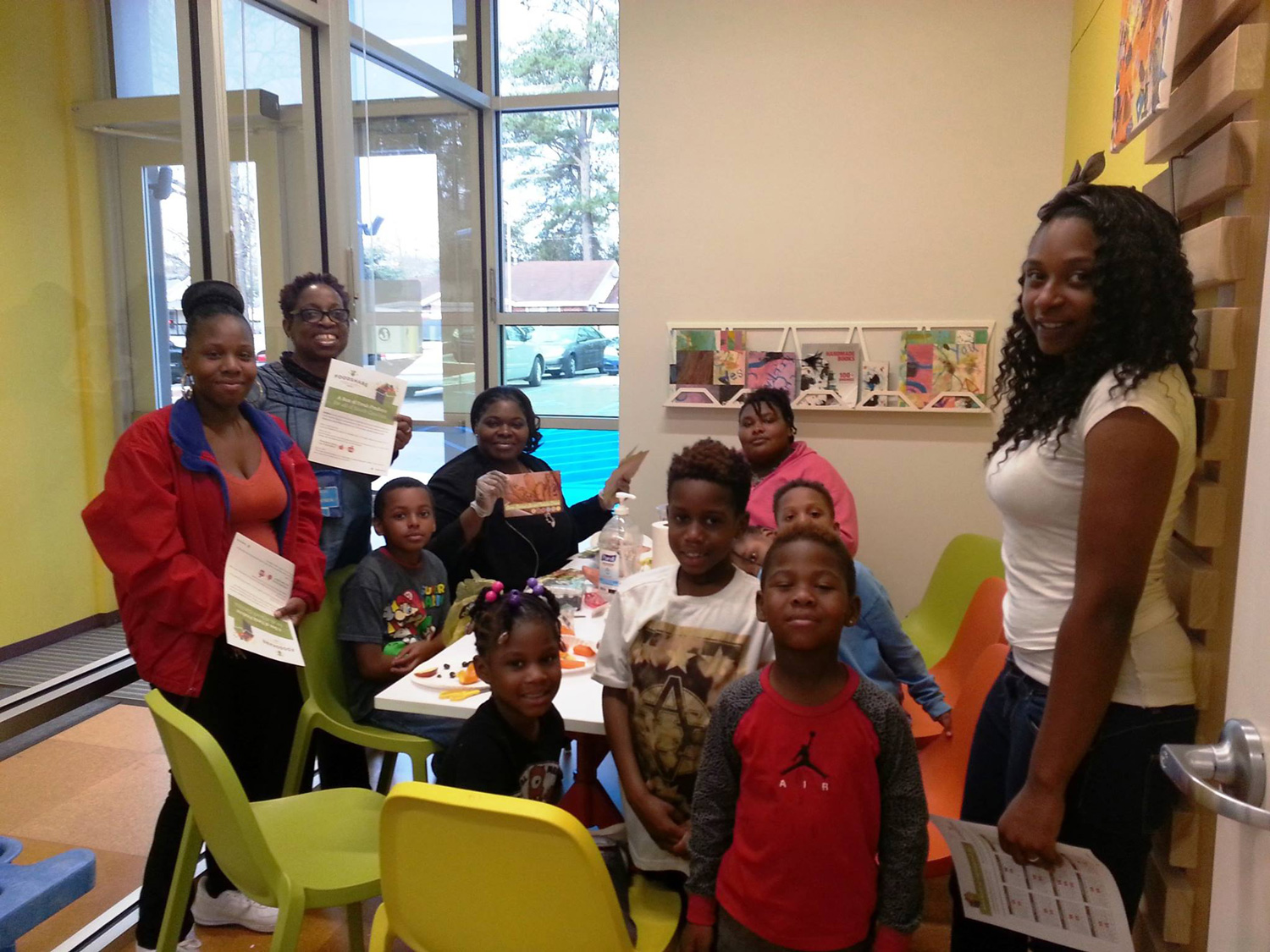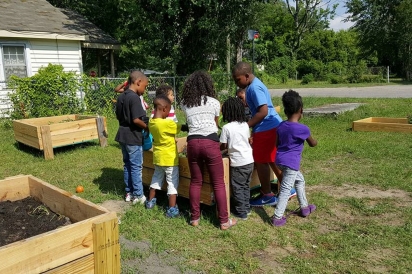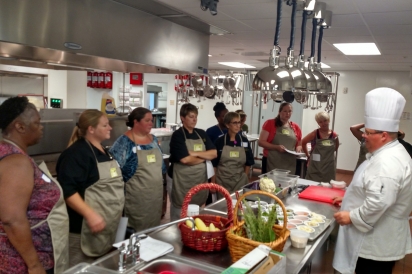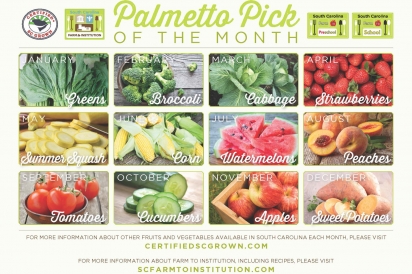Watching Your Garden Grow
South Carolina Farm to Institution facilitates school gardens and local produce in schools.
Ask a kindergartener to eat kale or collards, and chances are the answer will be “no.” Do it again after he’s had an opportunity to grow it himself, and the answer may be different.
Many researchers have discovered that when children plant and tend a garden, they feel a sense of pride as the garden produces fruits and vegetables planted by their own hands. Gardening provides a wide-range of benefits; it exposes children to fresh foods, light-to-moderate physical activity and the opportunity for social interactions. Engaging children in the gardening process promotes learning and builds healthy habits that carry into adulthood. The South Carolina Farm to Institution program recognizes this need and is committed to planting this seed, starting in preschools throughout South Carolina, and watching it grow into opportunities of school gardens and fresh school lunches.
South Carolina Farm to Institution originated in 2011 as a Farm to School program with its mission to facilitate communication and education around locally produced food. As its name indicates, the program includes all institutions—schools, child care centers, food banks, hospitals, military installations and other businesses in South Carolina. The program seeks to increase the number of farmers providing products by connecting farmers, distributors and institutions to allow for opportunities to support healthy, local produce throughout South Carolina. With the desire to incorporate all aspects of this project, state officials recognized this undertaking was going to require more than one department, so in 2015, it became a collaboration of five institutions: South Carolina Departments of Agriculture, Education, Health & Environmental Control and Social Services and Clemson University.
The current focus is on providing funding and resources to schools so they may educate teachers and staff on the four core components of the program: serve at least two South Carolina-grown products in the cafeteria, participate as an associate member of the Certified South Carolina Grown program, provide education and resources to students about eating healthy and where to purchase local food and establish a fruit or vegetable garden, farmers’ market or Community Supported Agriculture (CSA) program at the school. The Farm to Preschool and School Program created the Palmetto Pick of the Month, which highlights one local, seasonal fruit or vegetable, and serves as a guide for integrating food-based lessons into the curriculum. A garden toolkit is another resource available, and can assist administration and teachers in implementing a garden in their respective schools.
South Carolina Farm to Institution values collaboration and seeks partnerships with local organizations to host workshops and culinary skills training events for educators, food service staff and farmers—all of whom are integral to getting local foods into our schools and childcare centers. Currently 76% of schools and 42% of preschools are serving at least two South Carolina-grown products, 52% of schools and 42% of preschools have a garden, and the numbers are growing.
While the days of made-from-scratch school lunches with garden-fresh produce may seem like a distant memory, the efforts to connect farmers with local schools and child care centers—through initiatives such as Farm to School and Farm to Preschool—continue so South Carolina school lunches can return to their roots. With support from members of our community the future is ripe with opportunities for our South Carolina farmers and children.
To learn more about South Carolina Farm to Institution, visit the website at scfarmtoinstitution.com.
Story by Amy Weaver, SC Farm to Institution Director









